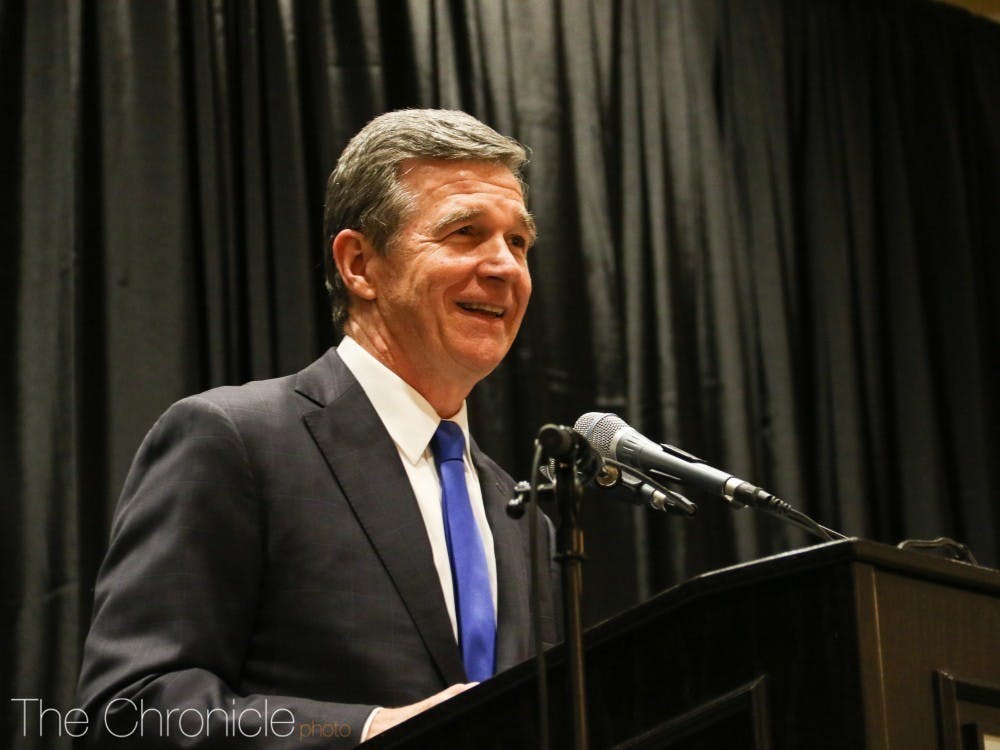North Carolina is one step closer to being carbon neutral, thanks to a new executive order from Governor Roy Cooper targeted at the transportation industry.
Titled “North Carolina’s Transformation to a Clean, Equitable Economy,” Executive Order No. 246 sets a goal of reducing greenhouse gas emissions in the state by 50% by 2030 and reaching net-zero by 2050. The order requires the N.C. Department of Transportation to develop a comprehensive North Carolina Clean Transportation Plan and aims for the state to have 1.25 million registered zero-emission vehicles by 2030.
It also hopes to make public transportation cleaner within the state, increasing the number of electric vehicles among city buses.
“We’re gonna direct the Department of Transportation to work with stakeholders to decarbonize the transportation system,” Cooper said at a live-streamed event held at North Carolina A&T State University in Greensboro Jan. 7, where he signed the order.
In addition to aiming at 1.25 million electric vehicles in the state by 2030, the order also calls for 50% of all new vehicle sales in the state to be zero-emission by 2030. The Clean Transportation Plan required will target “reductions in vehicle miles traveled, an increase in zero-emission cars, trucks, and buses, and other strategies,” the governor’s website says.
The executive order represents “another important step to increase the goals of greenhouse gas reductions, move more quickly to clean transportation, and to curb environmental injustices that affect our most vulnerable communities,” Cooper said at the Jan. 7 event. “We must build a clean, equitable economy for all North Carolinians.”
According to the governor’s website Executive Order No. 246 “updates North Carolina’s economy-wide carbon reduction emissions goals to align with climate science, reduce pollution, create good jobs and protect communities.” The order strengthens the state’s existing commitment to this goal, which has been demonstrated by previous Executive Orders No. 80, No. 143 and No. 218.
The order raises already lofty goals. and to meet them, the administration plans to update its statewide greenhouse gas inventory to be able to catalog more accurately where changes need to occur.
“The order also directs my cabinet and my administration to consider the harms of greenhouse gas emissions when we’re making decisions,” Cooper said at the event. This represents more generally an approach to policymaking that increasingly brings climate concerns front and center.
“One of the main goals of my administration is to move us to a clean energy economy to fight the existential threat of climate change and to create good-paying jobs that’s going to put more money in people's pockets,” Cooper said. “We know that climate change has caused more severe storms and we also know that often the effects of these storms hurt most the people who can afford it the least.”
Cooper talked about his goals to expand sectors of the state economy contributing the most to emissions reductions, citing the new Toyota EV battery plant set to be built in Greensboro.
“We know that the clean energy economy is bringing a bonanza of jobs to our state,” Cooper said. “We know that our solar industry in North Carolina is one of the fastest growing job creators that we have.”
He also discussed different job opportunities being created within the clean energy industry targeted at helping disadvantaged groups.
“[I’m] so excited about these apprenticeships and internship programs that we have in clean energy across the state, particularly those that focus on our low- to moderate-income communities, our communities of color, our marginalized communities,” Cooper said. “Creating these jobs is going to be exciting.”
Cooper further emphasized the importance of mitigating the disproportionate impact climate change can have on communities of color, as well as low-income and indigenous communities. Because of this, priority will be taken by all state agencies involved in fighting climate change to fund investments in these communities. Each agency will “identify an environmental justice lead to serve as the point person on environmental justice efforts,” according to Cooper.
Cooper acknowledged that one promising plan of action is not going to solve everything, though.
“I do recognize that there is a lot more to do, but I believe that this order can help establish a framework for all of us to succeed.”
Get The Chronicle straight to your inbox
Signup for our weekly newsletter. Cancel at any time.

Parker Harris is a Trinity senior and an editor at large of The Chronicle's 118th volume.

